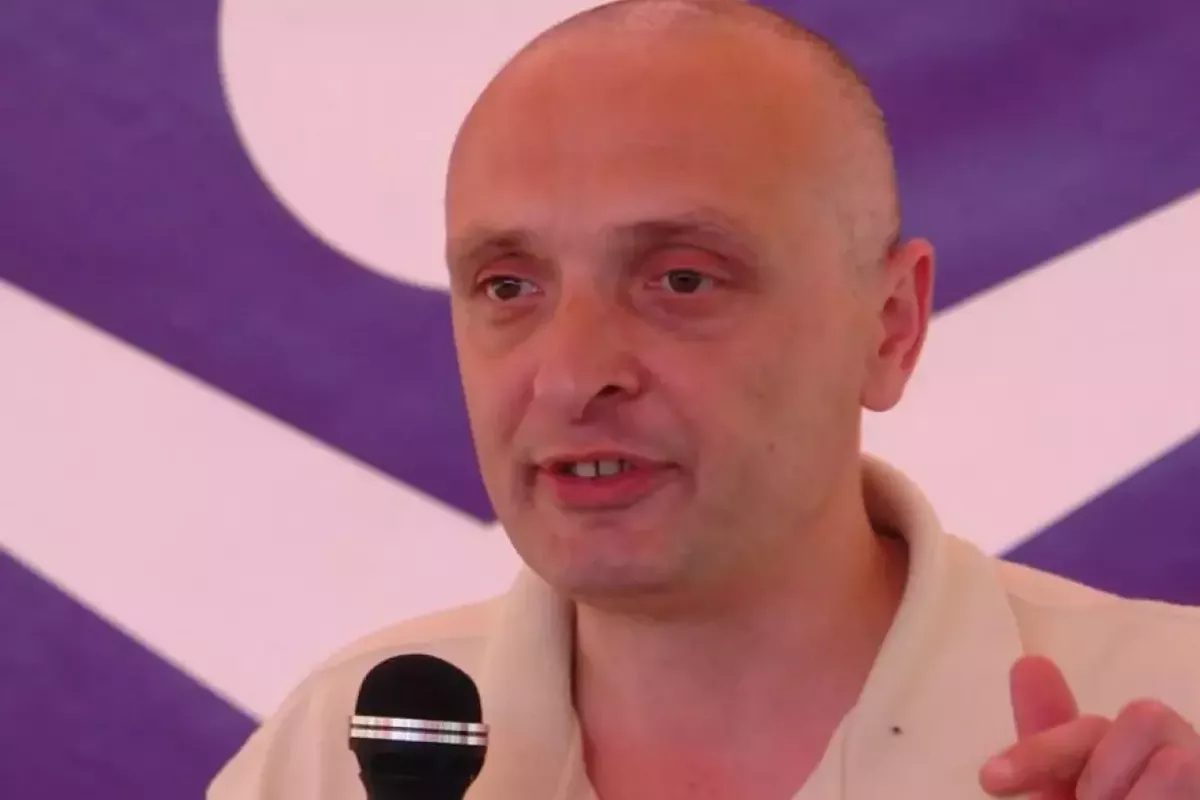
Photo: Georgian political expert Gia Kuchava
In an interview with The Caspian Post, Georgian political expert Gia Kuchava discusses the outcome of the recent municipal elections in Georgia, the current domestic political climate, and the country’s complex relations with the United States and the European Union.
He examines the factors behind Georgian Dream’s continued dominance, the opposition’s fragmentation, and the intensifying debate over Georgia’s geopolitical orientation between Russia and the West.
- How do you assess the outcome of the municipal elections held in Georgia?
- As expected, the ruling Georgian Dream party won in all municipalities. This occurred against the backdrop of a boycott by the radical opposition and a notably low voter turnout. Traditionally, turnout for municipal elections in Georgia is significantly lower than for parliamentary elections. According to the Central Election Commission, just over 40 percent of eligible voters participated.
Representatives of the European Union, including Kaja Kallas and Maria Koos, criticized the municipal elections, accusing Georgian Dream of creating conditions that “sharply limited the possibility of holding fair elections” and operating “in an atmosphere of pervasive repression” against the opposition. The EU statement added:
“Months-long raids against independent media, laws targeting civil society, arrests of opposition figures and activists, and changes to the electoral law in favor of the ruling party have severely restricted the possibility of fair elections.”
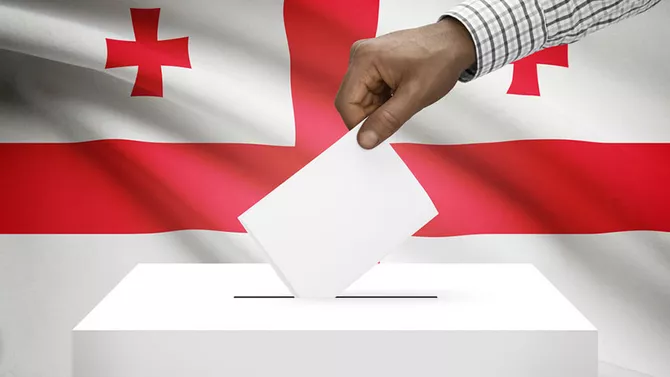
Photo credit: coe.int
I must note that EU representatives are only partly correct. Back in the mid-1990s, when the ruling party was the Union of Citizens of Georgia, a law was adopted limiting the participation of non-parliamentary political parties registered with the Ministry of Justice. To take part in elections, such parties had to collect 50,000 voter signatures, a figure later reduced to 25,000.
Under President Saakashvili, the term “qualified parties” was introduced, referring to political parties that had crossed the 7 percent threshold in previous elections and entered Parliament. These parties received state funding.
As a result, parliamentary parties enjoyed a privileged position in subsequent parliamentary and municipal elections. They were not required to collect 25,000 signatures to run, were allocated more television airtime, and continued to receive state funding.
It should also be noted that the signature-verification procedure often served as a barrier to prevent smaller political parties - those with minimal chances of entering Parliament - from participating. This method was used by the Union of Citizens of Georgia, later by the United National Movement, and now by Georgian Dream.
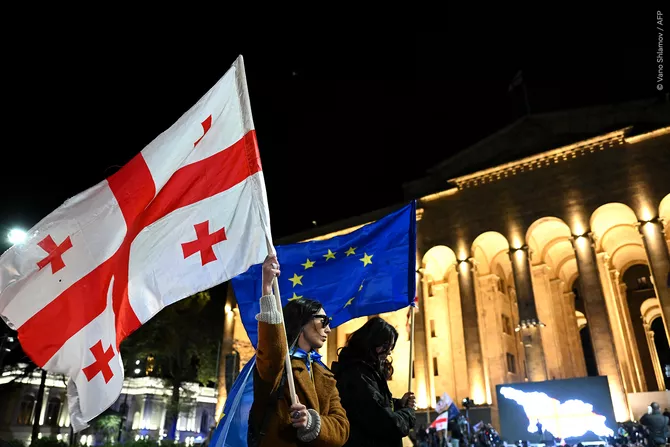
© Vano SHLAMOV / AFP
When Georgian Dream came to power, it introduced state financing even for parties that failed to enter Parliament in previous elections but received at least 1 percent of the vote, with the goal of promoting the development of small parties. Unfortunately, this objective has not been achieved.
Regarding alleged repression of independent media, today there are practically no truly independent outlets in Georgia. Almost all are controlled by one political party or another. In other words, what exists now is party media. These partisan channels have significantly contributed to the polarization of Georgian society.
I also disagree with the EU representatives’ characterization of “repression” against opposition members ahead of the elections. When leaders of the Lelo party, Mamuka Khazaradze and Badri Japaridze, initially refused to appear before Parliament’s investigative committee, they were detained by court order. However, President Kavelashvili pardoned them at the start of the election campaign. Therefore, it is incorrect to speak of political repression against opposition leaders.
The radical opposition, which boycotted the elections, further fueled tensions. In violation of the law, they tore down campaign posters of the ruling party and publicly announced plans to overthrow the Georgian Dream government on October 4. Such statements are effectively calls for the forcible seizure of power, which would be prosecuted in any democratic country. Through these actions, the radical opposition sought to portray itself to Western politicians and the Georgian electorate as “victims of the regime.”
However, the majority of Georgian voters, unlike some European politicians, do not share that view.
- What is the current internal political situation in Georgia following the suppression of unrest in Tbilisi? Which forces are interested in political instability in the country?
- The Italian sociologist Vilfredo Pareto once proposed an original concept of post-truth within his theory of the circulation of two types of elites: the lions and the foxes. According to this theory, lions and foxes compete for power, accusing each other of illegitimacy and fabricating falsehoods about either what they (the lions) have done or what they (the foxes) intend to do. The defining feature of post-truth is the rigid distinction between appearance and reality, a distinction that never fully disappears.
Therefore, the most convincing appearances often disguise themselves as reality. The key question is how to gain the greatest advantage: by rapidly reshaping appearances (the foxes’ position) or by stabilizing them (the lions’ position).
After the 2024 parliamentary elections, it became clear that Georgian Dream, in order to consolidate its power, was prepared to sacrifice relations with the West. In theory, this could have triggered another revolution, since the majority of the population supports European integration. Yet Georgian Dream skillfully exploited the fragmentation of the opposition and its calls to open a “second front” against Russia.
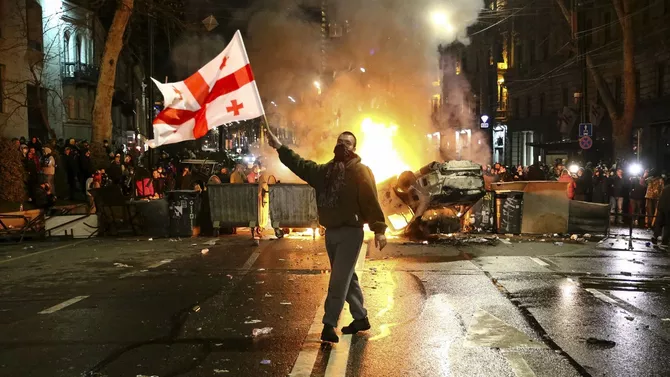
Photo credit: CNN
One of the radical opposition leaders, Nikanor (Nika) Melia, later admitted that the call for confrontation had been a strategic mistake. The public’s fear of another conflict with Russia proved decisive in securing Georgian Dream’s victory.
After the riots were suppressed, Prime Minister Irakli Kobakhidze’s team began tightening political control. Georgian society has also been closely following the arrests of several former high-ranking officials from Georgian Dream’s own government: former Deputy Minister of Economy Romeo Mikautadze, former Defense Minister Juansher Burchuladze, as well as recent searches conducted at the homes of former Prime Minister Irakli Garibashvili, former head of the State Security Service Grigol Liluashvili, former Prosecutor General Otar Partskhaladze, and eight other closely associated individuals. Investigators reportedly seized computer equipment, documents, and large sums of cash.
Some experts suggest that these individuals were pressured to contribute money to the “fund” of Georgian Dream or to the personal fund of Bidzina Ivanishvili, but refused. I do not share this interpretation. While the discovery of large amounts of cash and jewelry no longer surprises the public, linking Irakli Garibashvili directly to the October 4 events seems, to put it mildly, doubtful.
I have long maintained that after Garibashvili’s resignation as prime minister and later as chairman of Georgian Dream, Bidzina Ivanishvili may have sought to create a new, more controllable political party to counterbalance the growing authoritarianism, ambition, and unpopularity of Irakli Kobakhidze.
A precedent of this sort already exists in Georgia. For example, in the late 1960s and early 1970s, when Eduard Shevardnadze served as interior minister of Soviet Georgia, he bypassed both the Central Committee of the Communist Party and the Council of Ministers of the Georgian SSR to arrest the highly repected Babunashvili, allegedly in the name of the fight against corruption, even though Babunashvili was scheduled to be appointed minister the next day. Shevardnadze regarded him as a rival to his own career ambitions and thus removed a potential competitor.
The search of former Prosecutor General Otar Partskhaladze’s apartment (he is under Western sanctions, obtained Russian citizenship after his resignation, yet retained close ties and influence within Georgian business and security circles) has been interpreted by some analysts as a signal to the West that Bidzina Ivanishvili is targeting the pro-Russian nucleus within the elite.
It is still too early to judge the credibility of this interpretation. Personally, I doubt it. It is worth noting that the pro-Russian tilt of the ruling party intensified precisely after Irakli Kobakhidze became prime minister.
Many actors have an interest in political destabilization in Georgia - both Russia and certain circles in the West.
After the Second Karabakh War, when the idea of the Zangezur Corridor was first discussed, Russia began promoting its own project - the North-South Transport Corridor. To implement this plan, Moscow needed to reopen the Abkhaz section of the Georgian railway. To that end, it floated the idea of “resolving” the so-called Georgian-Abkhaz and Georgian-Ossetian conflicts through the creation of a confederation, to which Tbilisi firmly said no.
Nevertheless, Russia has not abandoned this idea, especially after losing leverage over the Zangezur Corridor. Moscow appears willing to provoke disturbances to pressure the Georgian government.
At the same time, certain liberal circles in the West are dissatisfied with the current ruling party, as Georgian Dream has refused to comply with some of Brussels’ key demands.
- The Georgian authorities have repeatedly called on U.S. President Donald Trump to reset Georgian-American relations, but Washington continues to ignore these appeals. In your opinion, could this become a factor pushing Georgia’s policy further toward Russia?
- The Georgian Dream government has long tilted toward Russia, particularly since Irakli Kobakhidze assumed the post of prime minister. After the 2024 parliamentary elections, Georgian Dream entered a phase in which the country’s integration into European structures can occur only after a change of government - at least, this is what officials in Brussels have stated.
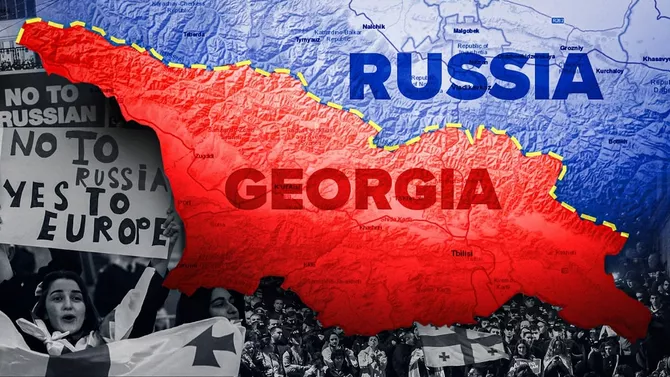
Photo credit: TASS
- If the European Union decides to take any radical steps toward Georgia, it will, in my view, first consult with the United States. At this stage, Washington clearly has specific interests in Georgia, which is why the EU is taking a cautious, wait-and-see approach.
Even during the Biden administration, which held a much more critical stance toward Georgian Dream, the EU failed to reach a consensus on sanctions.
The failure of the “reset” policy with the West could become a serious problem for the ruling party. Despite disagreements, Georgian Dream had still managed to preserve channels for normalizing relations with the West. Criticism from Brussels and Washington mostly concerned certain laws adopted by Parliament.
However, Brussels never explicitly stated that Georgia’s path to the EU was closed as long as Georgian Dream remained in power, nor has Washington expressed such a categorical stance.
The situation within the EU changed dramatically after the 2024 parliamentary elections. In many European capitals, there may no longer be enough influential actors willing to continue a dialogue with Tbilisi about the future of bilateral relations. The recent recall of the German ambassador to Georgia is one such example.
I have said before that Washington still believes it is possible to engage with the Georgian Dream government, despite Russia’s influence.
- Why might Georgia still be of interest to the United States?
- Since the early 1990s, Georgia has been of strategic interest to both Western Europe and the United States primarily as a transit corridor connecting Europe and Asia. Despite the anti-Western rhetoric of Georgian Dream leaders and the opening of the Zangezur Corridor, Western interest in Georgia has not diminished. Otherwise, the West would not be fighting so hard against the current government.
Trump’s foreign policy after returning to the White House has focused on re-evaluating America’s national interests and weakening the European Union, which poses new challenges for Georgia. If the United States were to “concede” Ukraine to Russia, Georgia could easily become the next target.
In my view, Trump sees Russia as a potential partner in a strategic alliance against China. At this stage, the Trump administration’s interest in Georgia may stem from the ongoing competition between the United States and China for influence in the country and across the South Caucasus region.
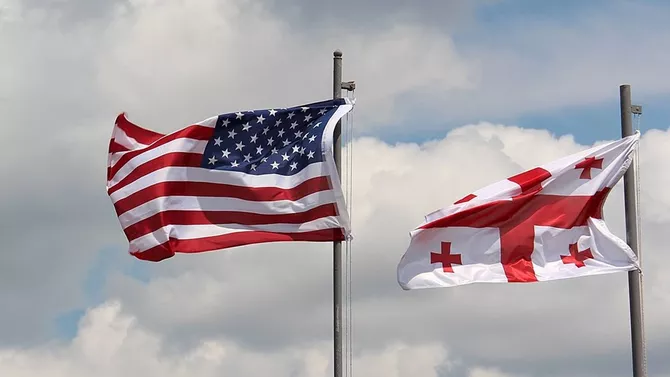
Photo credit: Reuters
It is probably no coincidence that after meeting Prime Minister Irakli Kobakhidze, Senator Markwayne Mullin stated that the Georgian leader “did not leave a bad impression” on him, adding:
“I understand what they (Georgian Dream) are trying to achieve. I realize the direct influence of Russia, which in my opinion confuses the situation within this government. But I want to work with them to understand how they can achieve real sovereignty and free themselves from excessive Russian influence.”
To that, I would also add - from China as well.
Let me remind you that major powers view Georgia as part of the South Caucasus, the strategic space between the Black and Caspian Seas. This region holds both economic and strategic importance: control over sea routes has always been central to global geopolitical interests, and Georgia remains essential for influence over the Black Sea.
At this stage, I would not rule out behind-the-scenes negotiations between Tbilisi and Washington. Georgia’s Ambassador to the United States, Tamar Taliashvili, who has extensive connections in American business and political circles, has reportedly been tasked with handling these delicate discussions. If my assumptions are correct, we will only learn the results once these negotiations are concluded.
By Asif Aydinli
Share on social media